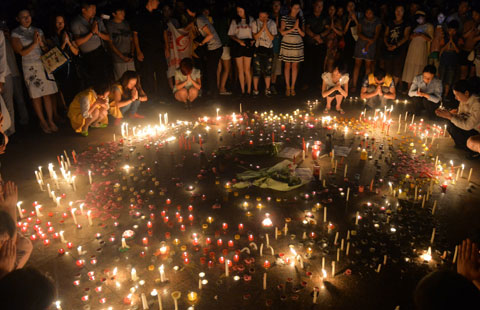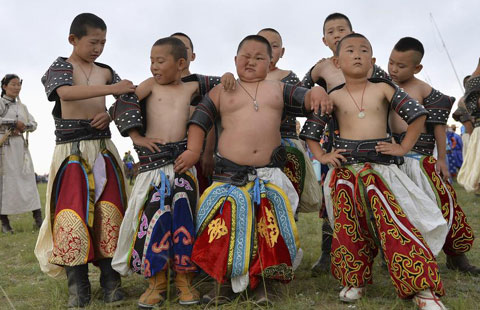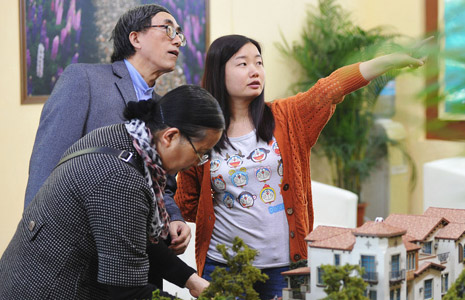Voices of the silent majority
Updated: 2014-08-18 07:44
(China Daily)
|
|||||||||||
Braveing a scorching sun on Sunday afternoon, more than 190,000 Hongkongers marched through the main streets of the city's central business district to raise their voices against the "Occupy Central" movement. Like the nearly 1.5 million citizens who signed the petition against the illegal movement, they wanted to ensure their previously silent voices would be heard.
With Hong Kong's constitutional reform for the election of its Chief Executive by universal suffrage getting underway, political radicals in the city have become increasingly vocal and aggressive about demanding some electoral changes.
Unfortunately, they have been fighting for such changes outside the legal framework - mainly the Basic Law and relevant decisions of the Standing Committee of the National People's Congress.
The "Occupy Central" advocates want to take Hong Kong's stability and economic well-being hostage by threatening to paralyze Central - the city's financial heart - if their demands are not met. But they have hardly any legal or moral grounds to stand on. They have had to resort to the pretext of the "popular will" - claiming they have a mandate from the people.
Now that 1.5 million citizens, or one-fifth of the Hong Kong populace, have unmistakably declared their disapproval of such political extremism, there is no room for "Occupy" advocates to continue to act under the disguise of the "popular will". They simply can't turn a blind eye to the will of the majority of Hong Kong society if popular will is really the element they value - as they claim.
Political radicalism arising from the discord over electoral reform has not only polarized Hong Kong politically, but also affected social stability. According to the latest survey by the University of Hong Kong, the city's stability is now at its lowest level since April 2004.
Radicalism is threatening to derail the city's constitutional reform, diminishing the prospect for Hong Kong people to select their Chief Executive by "one man, one vote" in 2017.
A return to the legal framework is the only way out for Hong Kong to end the current impasse over electoral reform and advance democracy in the city. This requires some pragmatism from the opposition camp, particularly its radical members, who have insisted on adopting some electoral systems which have no legal standing.
Related Stories
190,000 people in HK turn up for anti-Occupy march: organizer 2014-08-17 23:33
Worrying signs for HK 2014-08-14 07:19
HK has to get full democracy in 'gradual and steady' way 2014-08-14 07:36
Overcoming HK's social divide 2014-07-29 06:52
Today's Top News
Japanese ministers visit war-linked Yasukuni Shrine
British Chinese call for memorial to WWI workers
Pollution control 'priority for APEC'
Abe sends offering to war criminals
Swimmer nabs silver at Gay Games in the US
Huge IT layoffs trigger labor friction
China exports to Russia to surge
Chinese economic crime suspects repatriated
Hot Topics
Lunar probe , China growth forecasts, Emission rules get tougher, China seen through 'colored lens', International board,
Editor's Picks

|

|

|

|

|

|





